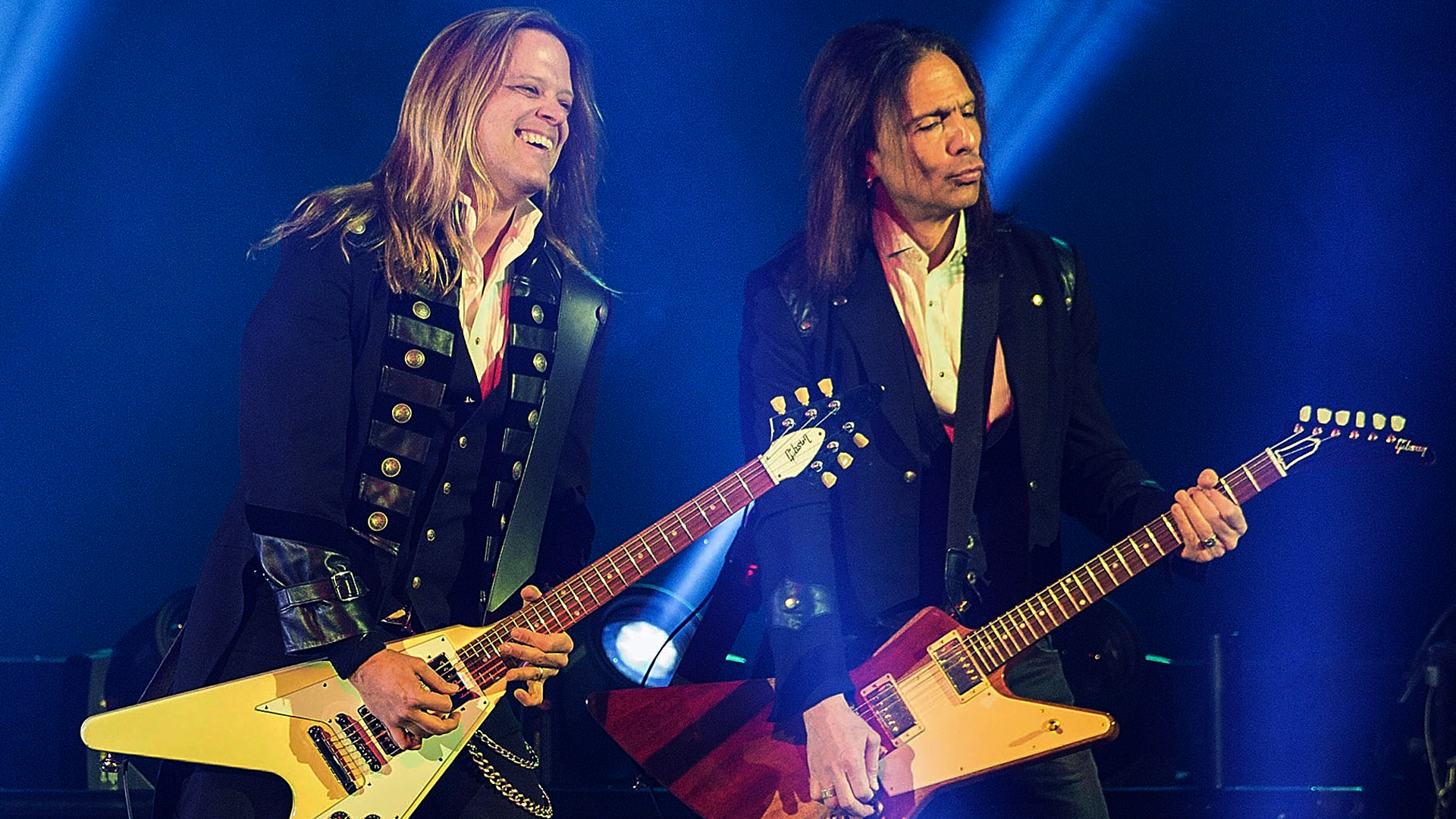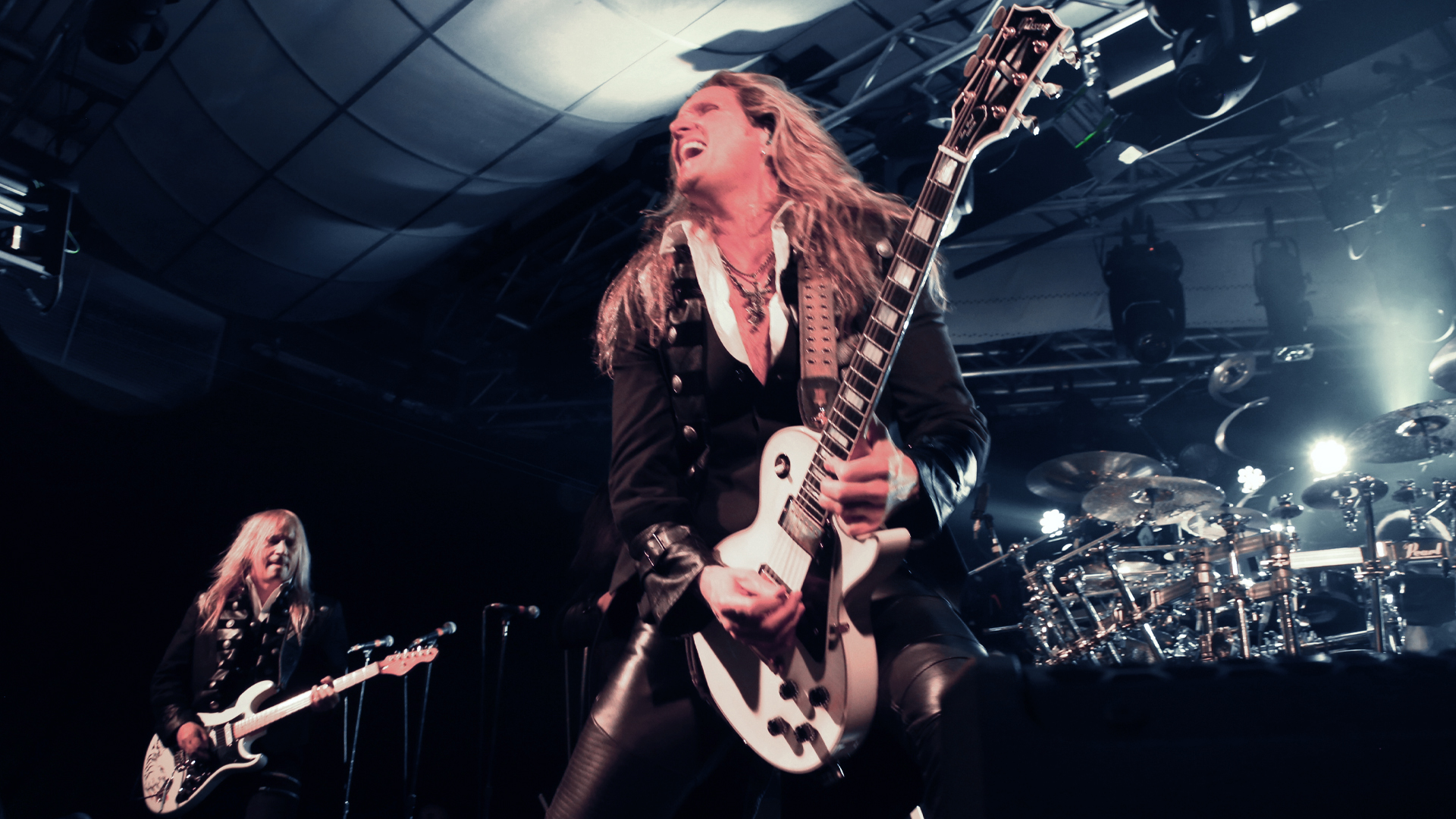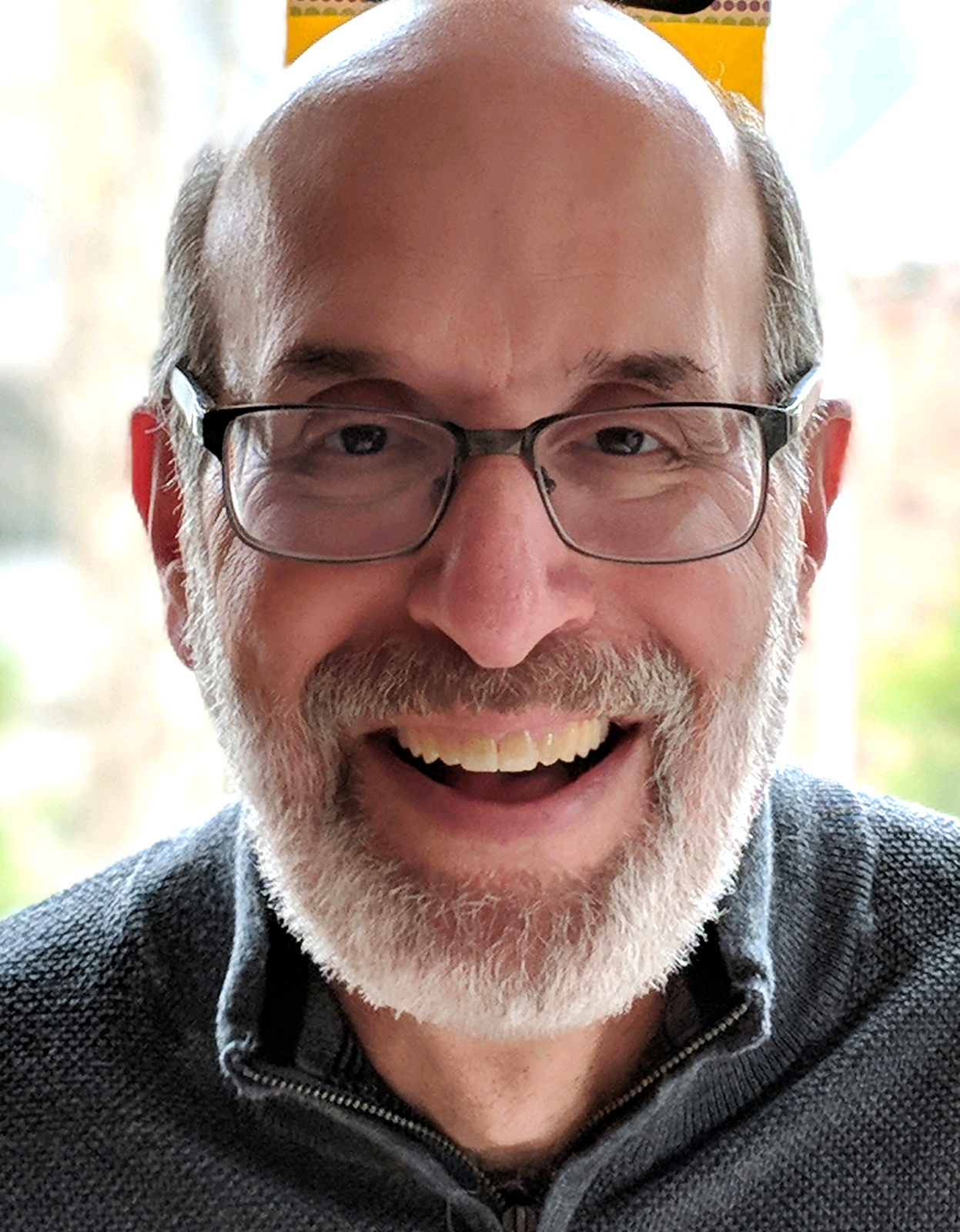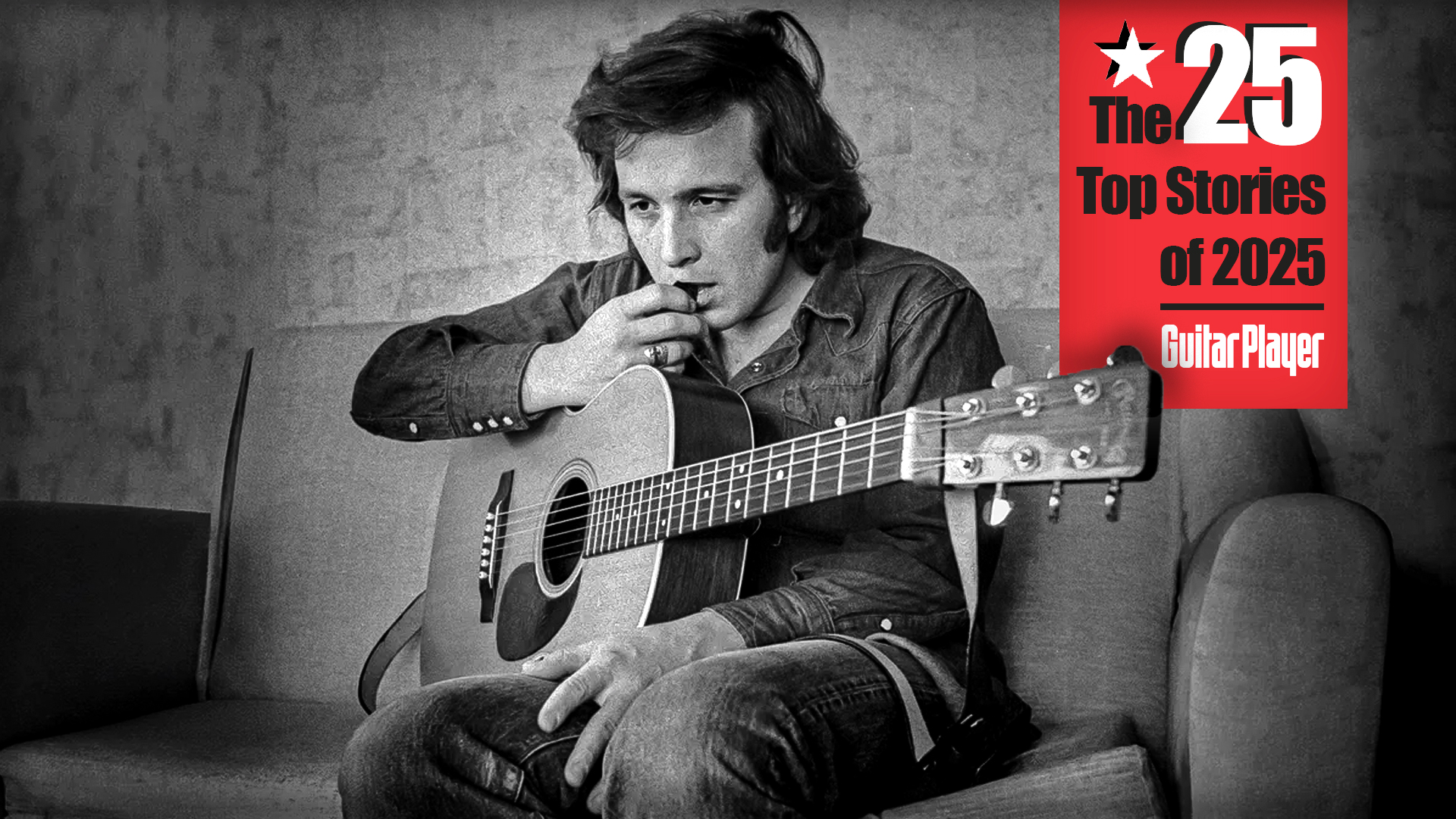“A lot of guitar players want to go in there and shred. I came up with a minor 9th arpeggio and put it over the cello. I approached it as if I was scoring a film.” As Trans-Siberian Orchestra revs up again, Al Pitrelli reflects on how it all began
The guitarist also shared the stories behind his five favorite TSO tracks

Al Pitrelli well remembers the day nearly 30 years ago (this coming February) when the late Paul O'Neill brought in a new song for the next Savatage album.
"I sat down in a chair with Paul," Pitrelli says, "and he put the faders up on what was to become 'Christmas Eve/Sarajevo 12/24.' A lot of guitar players want to go in there and be guitar players — shred and all that. I came up with a minor 9th arpeggio and put it over the cello that was doing the 'God Rest Ye Merry Gentlemen' melody. I wanted to serve the song. I approached it as if I was scoring a film for him — what would John Williams do, or Hans Zimmer? You want to establish a mood.
“And it worked out pretty well."
That would be an understatement, of course. Beyond appearing on Savatage's ninth album, Dead Winter Dead, in 1995, "Christmas Eve/Sarajevo 12/24" was the opening salvo for Trans-Siberian Orchestra, an orchestral concept O'Neill launched with Pitrelli, Savatage's Jon Oliva and keyboardist Bob Kinkel. Before his sudden death in 2017 at the age of 61, O'Neill explained to us that he conceived the project as "everything I loved about rock music — big, bombastic, over the top...It was rock but on a grand scale, the mixture of classical and rock, which I obviously got from bands like Emerson, Lake & Palmer, and the rock opera aspect, which I plainly got from the Who. The vision has always been cutting edge."
That vision has been exercised over eight mostly conceptual albums (four of them Platinum) and an EP, including three full-length Christmas-themed works. Two of TSO's songs, "Christmas Eve/Sarajevo 12/24" and "Wizards in Winter," rank as contemporary holiday standards. TSO's annual winter tours since 1999, meanwhile, celebrate the season with enough pyrotechnics and special effects to put a Roland Emmerich film to shame.
Pitrelli has served as musical director for those outings, which now include two separate companies to cover the country in less than seven weeks, often playing two shows a day (and this year celebrating the 20th anniversary of TSO's fourth album, The Lost Christmas Eve). Chris Caffery, another Savatage alumnus, has been onboard since the start, and over the years the guitar corps has included Joel Hoekstra, Alex Skolnick, Angus Clark and Bill Hudson, among others.

"The balance we like to keep is new but very familiar," Pitrelli explains. "The people we see every year — I call them the 'repeat offenders' — they've made this a part of their holiday tradition. They love the stories Paul wrote. They want to come in and be comfortable and familiar...and we want to keep them on their heels and surprise them — but not too much."
All the latest guitar news, interviews, lessons, reviews, deals and more, direct to your inbox!
As TSO launches its Lost Christmas Eve Winter Tour 2024 on November 13, with dates through December 30 (visit trans-siberian.com for tickets), it seemed like an opportune time to ask Pitrelli to name his five favorite of the troupe's songs to play.
Christmas Eve/Sarajevo 12/24 (1996)
![Trans-Siberian Orchestra - Christmas Eve / Sarajevo (Timeless Version) (Official Music Video) [HD] - YouTube](https://img.youtube.com/vi/MHioIlbnS_A/maxresdefault.jpg)
“I hate to use the word emotional, but 30 years ago this coming February is when I started working with Paul. There was really no money involved. Nothing. He asked me to come in and help, bought me at cheeseburger, and at the end of the session I was like, ‘I hope somebody hears it,’ because when you think back to 1996, that's not what was going on in radio. And by the end of the year we had the most requested song. It was really fun, like watching one of your children grow up and exceed all expectations. So every time we play it, I flash back 30 years. There's a great sense of pride when I'm playing that song.”
Different Wings (2004)
"It's solo acoustic guitar with one vocal, not hiding behind anything. Acoustic, as you know, is a completely different animal than electric guitar, if done properly. I love playing acoustic guitar in an arena because it's the most uncomfortable I'll ever be. You play an acoustic song, some Cat Stevens song or something, in some wine=and-cheese place and, yeah, that works. Then you start playing a delicate chord in front of 15,000 people, and you are naked. That's an anxious one to me — but fun. The first downbeat is terrifying, but after that it's smooth sailing. When you've got other guitar players coming in and shredding and tearing it up, that's great and fun and everything; when I hand them an acoustic guitar, they're like, 'Uh-oh...' " [laughs]
Ornament (1996)
"I recorded that song 28, 29 years ago for the first album, and my older children were babies back then. The song is about a father pleading to the heavens for the safe return of his daughter, who ran away from home, and it's Christmas Eve. He doesn't care why she left. He just wants her to come back safely.
"When I recorded it, Paul explained the story, and I approached it from a younger father's point of view and did my best Gary Moore impersonation on that solo — very melodic and pretty. I've gotten older, and my sons have gotten older. Two of them are in the military — the older one's a Special Forces sniper stationed in Coronado; the youngest just joined the U.S. Space Force — so every time I play that song I'm thinking from an older father's perspective, with children on the other side of the planet as soldiers. They're grown men, and what they do is what they do, but they're still my baby boys. I'm 62 years old now, afraid every day for my kids — all of them. When I listen to Jeff Scott Soto sing that lyric or get into that Neal Schon/Gary Moore–esque type of solo, very soulful and very lyric, I really put my heart and soul into it."
The Madness of Men (2015)
"The song's based on Beethoven's Coriolan Overture, so recording it I was creating guitar parts that obviously didn't exist when Beethoven put it together [in 1807], which was daunting in the studio. There's no motif or repeats — it's just one long thought. Playing that live you've got to be super-focused. If you drop one note, you're not getting it back. It's not, like, going to the verse and the bridge and the chorus. It starts in one place and goes on a long circuitous journey of primary dominance, secondary dominance — something you'd never think of a in a million years as a guitar player. I really have to stand still and dig in and play. I rehearse it a lot. If I lose focus for even one second on some of these classical pieces, I'm doomed. It's the same thing with Mozart's Marriage of Figaro. You hit the downbeat on his opening motif and you better be focused and ready or it's gonna get ugly."
Wizards in Winter (2005)
"When Paul found out that he could program pyro to every hit and the lasers could be programmed to replicate my fast lines in the song, there was no turning back. [laughs] I'm standing there remembering when I was a kid in an Allman Brothers cover band, thinking, This is cool, and now I'm doing this... and all hell has broken loose onstage.
"When it was composed it was an odd chord progression. [TSO co-producer/co-composer and keyboardist] Bob Kinkel and Paul O'Neill put that one together, and it was really bouncy and really quirky. I wanted to make sure the rhythm guitar was punchy, but playful. And the lines in that song are really fast. When we were recording it, I was doing each line, like, a million and half times, and my left forearm felt swollen, like Popeye's. I was sitting there and playing it behind the beat, trying to create that pocket. When we do it live, I always take a couple minutes to practice, 'cause there's a certain swing I insist the band have when we do it behind the beat, a real Led Zeppelin or AC/DC kind of feel. I think I get nervous and anxious when it gets ahead of the beat. If everyone is racing to the finish line, it doesn't make sense."
Gary Graff is an award-winning Detroit-based music journalist and author who writes for a variety of print, online and broadcast outlets. He has written and collaborated on books about Alice Cooper, Neil Young, Bob Seger, Bruce Springsteen and Rock 'n' Roll Myths. He's also the founding editor of the award-winning MusicHound Essential Album Guide series and of the new 501 Essential Albums series. Graff is also a co-founder and co-producer of the annual Detroit Music Awards.



![Trans-Siberian Orchestra - Wizards in Winter (Official Music Video) [HD] - YouTube](https://img.youtube.com/vi/pWBjl-jPcVM/maxresdefault.jpg)

